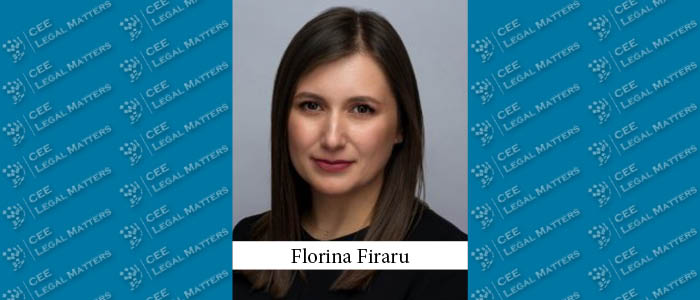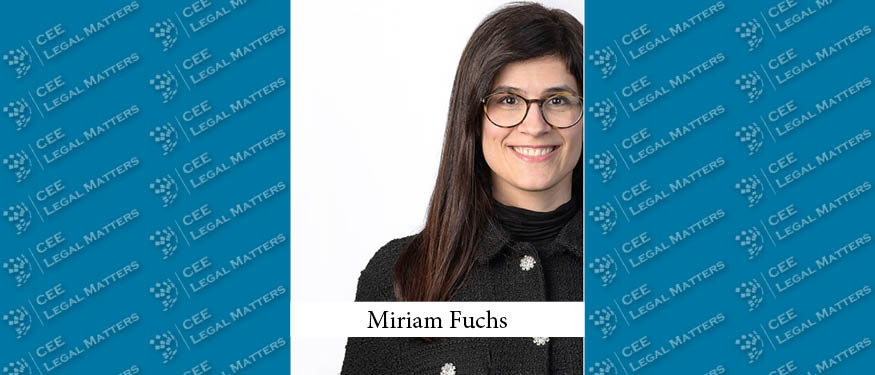The National Bank of Serbia (“NBS”) adopted the new Decision on the Minimum Requirement for Capital and Eligible Liabilities of a Bank (“New MREL Decision”), as part of a package of new or amended bylaws following the latest amendments to the Law on Banks. The New MREL Decision shall replace the existing decision of the same name (“Existing MREL Decision”) and shall apply starting from 1 October 2025.
Extension of Time Limits for Giving Notice and Immediate Termination by an Employer
The so-called “flexinovela” amendment of the Labour Code (CZ) effective from 1 June 2025 brings a number of fundamental changes, especially in terminating employment. For employers intending to issue a notice to an employee for breach of duty or to terminate employment immediately, the statutory time limits for doing so have been extended. This amendment addresses the practical needs of employers who have previously struggled to thoroughly investigate cases within the existing time frames. In this post, we will take a closer look at these revised time limits for issuing notices and immediate terminations. Generally speaking - what kind of time limits do we have and why are they important
Moral Rights: A Romanian Copyright Law Perspective
In a globally connected creative landscape, where authors collaborate across borders and works circulate digitally with unprecedented speed, the protection of moral rights (personality rights of the author) becomes increasingly relevant. Today’s digital environment enables the rapid creation, distribution, and transformation of literary, musical, visual, and audiovisual works. As companies increasingly rely on creative content, it becomes essential to address moral rights - especially the rights of authorship and integrity - in agreements.
New Energy Law in North Macedonia
On May 21, 2025, the new Energy Law was published in the Official Gazette of the Republic of North Macedonia, adopted by the North Macedonia Assembly on May 14. This systemic and reform-oriented law marks a pivotal step in the transformation of the national energy sector, aligning it with European standards, sustainable development goals, and consumer protection principles.
Slovakia: Renaissance of the Commercial Register?
The Ministry of Justice of the Slovak Republic recently presented a draft of a new legislation governing the Slovak Commercial Register, amending the Slovak Commercial Code and other acts (New Legislation).
Green Transition
The energy sector powers everything around us. Today's civilization consumes more energy in a single second than some ancient civilizations used over centuries.
Debt Collection Series - 1: Interim Attachment Orders in Turkey — A Guide for Foreign Businesses and Investors
Interim attachment is a provisional remedy under the Enforcement and Bankruptcy Law No. 2004 [the “EBL”] which individuals or legal entities can request for their monetary claims. Thanks to this institution, the debtor’s assets could be frozen to secure due yet unsecured debts, and as a result, the debtor would be forced to pay its debt.
ESG in Action: Hategan Foundation’s Timisoara Viennese Ball Connects Businesses and the Community
Back in the article "Transposition of the Corporate Sustainability Reporting Directive in Romania," published in Issue 12.3 of the CEE Legal Matters magazine, we explored the regulatory landscape of ESG in Romania as part of CEELM's market snapshot. Here's a case study of what ESG means in practice, a project started 10 years before the ESG legislation but focusing on the same values and principles.
Multifunctional Spaces, Customer Experience, and Green Technologies: How the Real Estate Market Is Responding to Challenges
Diverse trends, selective focuses and energy-efficient solutions will define the real estate market in 2025, according to DLA Piper Hungary's annual real estate intelligence report. Here is a summary of some of the key trends featured in the Hungarian Real Estate Intelligence Report.
What the Labor Inspectorate Is Interested In: Discrimination and Unequal Remuneration
The National Labour Inspectorate's report on the status of equality and discrimination in employment relations for the year 2024 shows that discrimination in the workplace is a hot topic.
Opportunities and Challenges in the CEE Energy Sector
Countries in the Central and Eastern European (CEE) region have set ambitious targets to increase the share of renewable energy sources. However, in many cases, there remains a significant gap between planned objectives and the actual installed energy generation capacities. Support schemes implemented in various countries—such as CAPEX subsidies—are increasingly making the sector attractive to investors, which in turn stimulates mergers and acquisitions (M&A) activity. The growing reliance on weather-dependent renewable electricity generation is also driving substantial investment demand in energy storage. Additionally, the region is seeing a rise in R+D projects focused on small modular reactors (SMRs) and alternative fuels, while the Li-ion battery recycling market is expected to experience explosive growth.
Trustworthy AI: A Guide for Risk Assessment and Compliance
In our previous practice, we have assisted clients in the course of implementation of AI systems (“AIS”), i.e., assessment of the impact of risks of AIS, especially in the medical and research sector. While working on these projects, we came to the conclusion that many companies overlook obligations or are not even aware of risks for safety, health and fundamental human rights which are tied to the implementation and use of high-risk AIS and can result in significant compliance risks under the applicable legal framework.
Albania Adopts New Instruction on the Processing of Health and Genetic Data
As part of the broader effort to harmonise national legislation with the EU General Data Protection Regulation, the Albanian Data Protection Commissioner issued Instruction No. 2, dated 30 April 2025 (Instruction No. 2), on the protection of personal data in the health sector. This Instruction repeals the previous 2020 framework and establishes a comprehensive set of rules governing the collection, use, and disclosure of health and genetic data.
Companies May Have Six More Months to Comply with the NIS2 Directive
“To comply with the cybersecurity requirements of the NIS2 directive, affected businesses may get an additional six months to prepare,” announced the Supervisory Authority for Regulatory Affairs of Hungary (SZTFH) in a statement on 5 May 2025.
Asters Energy Policy Pulse (Volume 35)
Digest of recent legislative developments in the fields of energy and natural resources.
Hungary Centralizes Inventory Management for Medical Consumables
On 26 May 2025, the Hungarian Government published Government Decree 110/2025. (V. 26.) (the Decree), introducing a mandatory centralised inventory management regime for medical consumables used by public healthcare institutions. The Decree amends the regulatory framework under:
A Deadline Has Now Been Set For the Use of Privatization Certificates in Latvia
A privatization certificate is a dematerialized security issued by the state, which can be used only once as a means of payment for state or municipal property subject to privatization.
The Extraterritorial Effect of Ukrainian Sanctions
The recently issued decision of the Ukrainian Supreme Court addresses the enforcement of Ukrainian sanctions in relation to foreign corporate structures and ownership chains involving a sanctioned person.

































